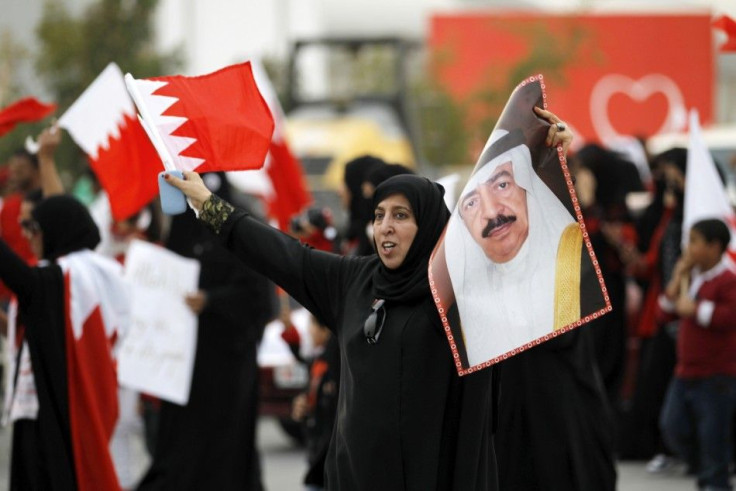Crisis in Bahrain deepens as military takes over streets, bans protests

Further protest demonstrations have been banned in Bahrain, while the small nation’s military takes greater control following violent anti-government clashes in the capital, Manama, according to state TV.
At least three people have died in the protests, and hundreds injured in violence that involved police using tear gas, clubs and rubber bullets.
Bahrain’s Interior Ministry warned that the military will take every measure possible to maintain law and order.
“The forceful means employed by the security forces is contradictory to the statement issued by the interior ministry earlier this week that police had been urged to restrain the use of force on protesters,” said Gala Riani, a London-based analyst IHS Global. “The choice to use such firm means to disperse the crowd that had gathered in Manama's Pearl Square is indicative of the government's high level of concern over the possibility of further unrest.”
The demonstrators want numerous reforms, including the release of political prisoners, the creation of more jobs and housing, and the resignation of Prime Minister Sheikh Khalifa Bin Salman Al Khalifa, who has held power for 40 years.
Manama has essentially been shut down by the presence of military tanks, army patrols and helicopters buzzing above. Key roads now have checkpoints, while barbed wire has been constructed to streets leading to Pearl Square, the center of anti-government agitation.
The heavy hand of the authorities has triggered outrage among the opposition and warnings that protests will continue.
In response to the crackdown, 18 Members of Parliament of the opposition Shiite Islamist party al-Wefaq are reigning, according to Abdul Jalil Khalil, a leader of the minority opposition.
We are going to do what's necessary to change this into a democratic country, even if some of us lose our lives, Ibrahim Sharif, of the secular Waad party, told the BBC. We want a proper, functioning, constitutional democracy.
However, a spokesman for the Interior Ministry, Brig Tariq Hassan al-Hassan, defended the crackdown, saying that some protesters refused to obey the law and that led to interference to make them leave. He added that security forces had been keen to communicate with the protesters through public figures to end the sit-in peacefully but that some had exploited this tolerant atmosphere.
Riani commented that Bahrain's Shi'a population has in the past “shown that it can sustain prolonged periods of protests against the regime, and the authorities have shown that they can withstand such unrest. However, with several people killed, this morning's events have raised the stakes and possibility of further unrest.”
The Foreign secretary of the UK (along with the U.S., a key Bahraini ally) has called on Bahrain's government to exercise restraint.
Moreover, Foreign ministers of the Gulf Cooperation Council, which comprises Bahrain, Oman, Qatar, Saudi Arabia and the United Arab Emirates, will hold an extraordinary meeting in Bahrain on Thursday.
Bahrain's foreign ministry said the council is expected to announce their support for the [Bahraini] government in security, defense and politically.
© Copyright IBTimes 2024. All rights reserved.





















